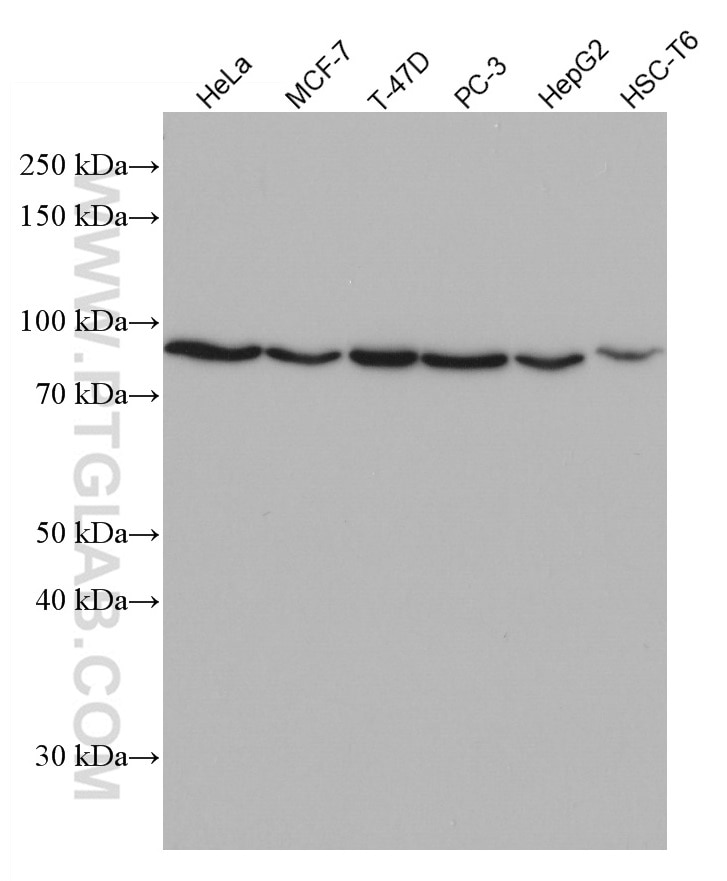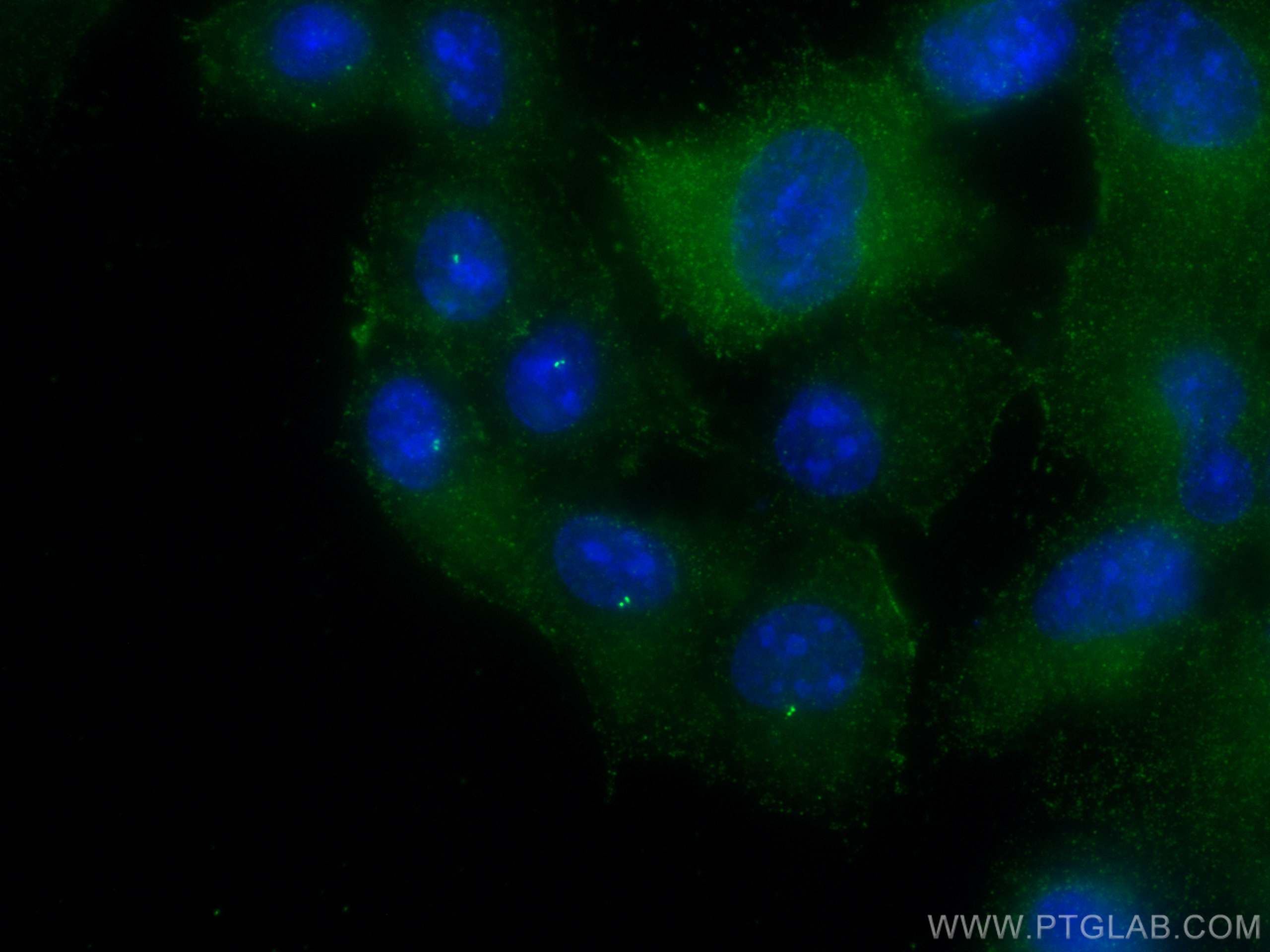Anticorps Monoclonal anti-CEP63
CEP63 Monoclonal Antibody for WB, IF/ICC, ELISA
Hôte / Isotype
Mouse / IgG1
Réactivité testée
Humain, rat, souris
Applications
WB, IF/ICC, ELISA
Conjugaison
Non conjugué
CloneNo.
2G12B2
N° de cat : 66996-1-Ig
Synonymes
Galerie de données de validation
Applications testées
| Résultats positifs en WB | cellules HeLa, cellules HepG2, cellules HSC-T6, cellules MCF-7, cellules PC-3, cellules T-47D |
| Résultats positifs en IF/ICC | cellules hTERT-RPE1, |
Dilution recommandée
| Application | Dilution |
|---|---|
| Western Blot (WB) | WB : 1:1000-1:6000 |
| Immunofluorescence (IF)/ICC | IF/ICC : 1:1000-1:4000 |
| It is recommended that this reagent should be titrated in each testing system to obtain optimal results. | |
| Sample-dependent, check data in validation data gallery | |
Applications publiées
| IF | See 1 publications below |
Informations sur le produit
66996-1-Ig cible CEP63 dans les applications de WB, IF/ICC, ELISA et montre une réactivité avec des échantillons Humain, rat, souris
| Réactivité | Humain, rat, souris |
| Réactivité citée | souris |
| Hôte / Isotype | Mouse / IgG1 |
| Clonalité | Monoclonal |
| Type | Anticorps |
| Immunogène | CEP63 Protéine recombinante Ag9227 |
| Nom complet | centrosomal protein 63kDa |
| Masse moléculaire calculée | 703 aa, 81 kDa |
| Poids moléculaire observé | 85 kDa |
| Numéro d’acquisition GenBank | BC014050 |
| Symbole du gène | CEP63 |
| Identification du gène (NCBI) | 80254 |
| Conjugaison | Non conjugué |
| Forme | Liquide |
| Méthode de purification | Purification par protéine G |
| Tampon de stockage | PBS with 0.02% sodium azide and 50% glycerol |
| Conditions de stockage | Stocker à -20°C. Stable pendant un an après l'expédition. L'aliquotage n'est pas nécessaire pour le stockage à -20oC Les 20ul contiennent 0,1% de BSA. |
Informations générales
CEP63 is required for normal spindle assembly. It maintains centrosome numbers through centrosomal recruitment of CEP152. CEP63 recruits CDK1 to centrosomes. It plays a role in DNA damage response.
Protocole
| Product Specific Protocols | |
|---|---|
| WB protocol for CEP63 antibody 66996-1-Ig | Download protocol |
| IF protocol for CEP63 antibody 66996-1-Ig | Download protocol |
| Standard Protocols | |
|---|---|
| Click here to view our Standard Protocols |



